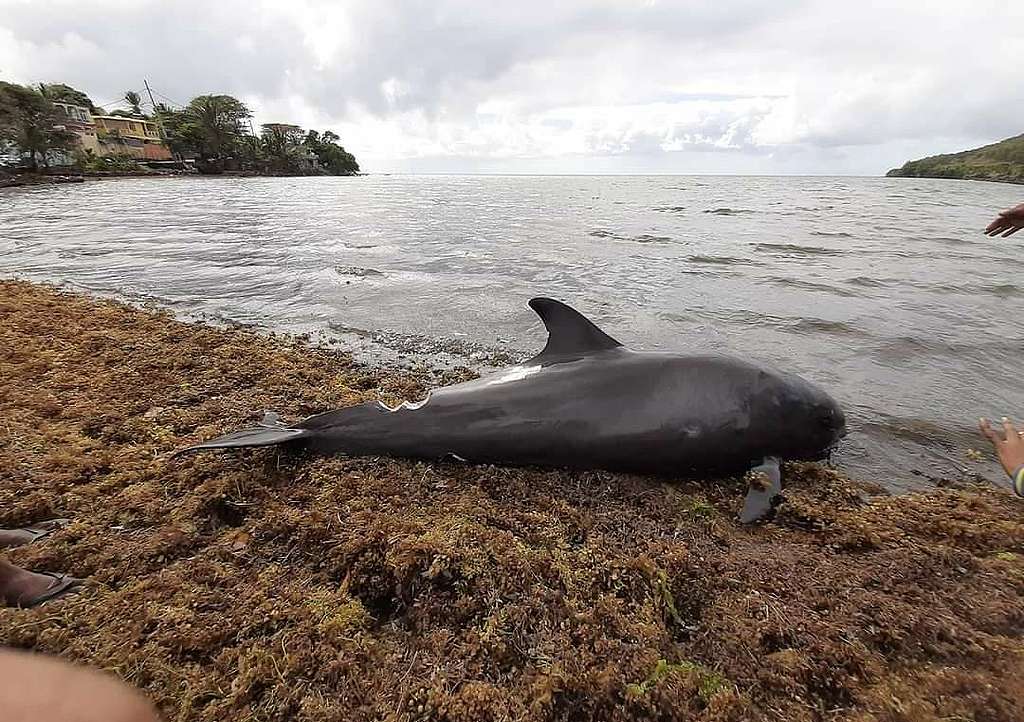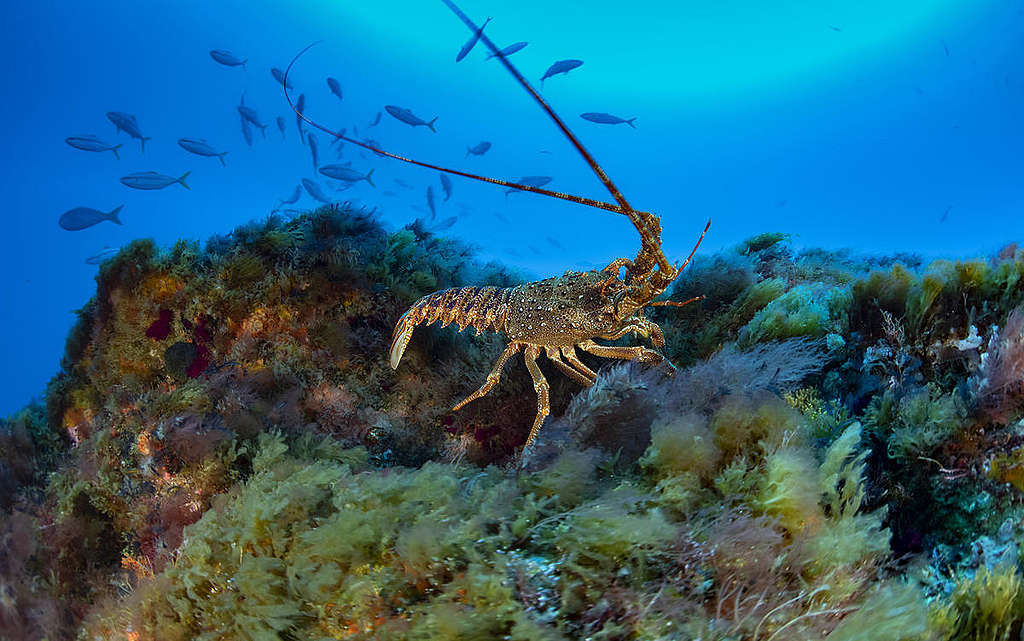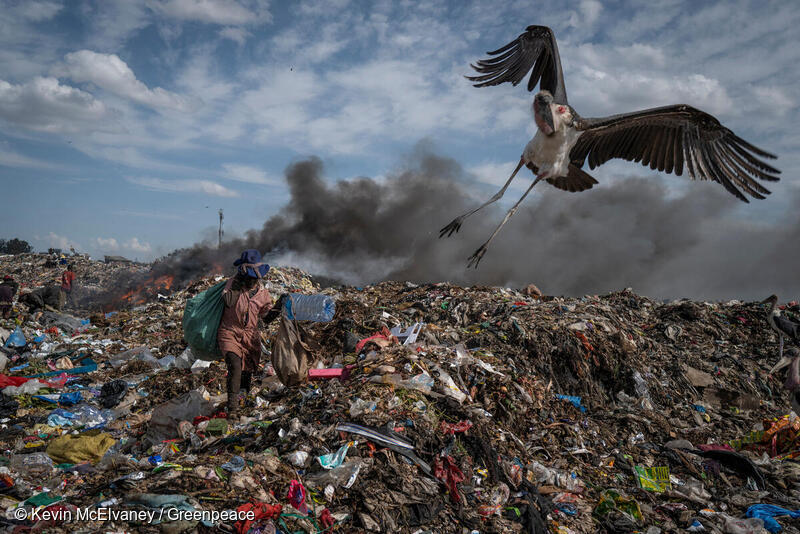
Johannesburg, 28 September 2020 – Last weekend Mauritian media reported that a Forensic Science Laboratory had discovered traces of oil (hydrocarbons) during an autopsy of a pregnant melon-headed whale carcass, conducted to determine the cause of death of 50 whales and dolphins. The Mauritius government states the laboratory hadn’t disclosed its conclusions but does not provide any alternative information.
Happy Khambule, Greenpeace Africa Senior Climate and Energy Campaign Manager:
“We will never know if anyone should be held accountable for the death of 50 whales and dolphins if there is no public information. Instead of buying time and placating the public, authorities in Mauritius should gain its trust by disclosing all they know”.
On 24 August, Greenpeace and Mauritian human rights NGO Dis Moi have sent a joint letter to the government of Mauritius, demanding a fully public independent investigation. After no answer was given by Mauritian authorities, a second letter was sent on 14 September.
Vijay Naraidoo, co-director of Dis Moi: “The greatest environmental disaster in our island’s history is being handled with the worst standards of transparency. Authorities in Mauritius do not have the right to remain silent. Instead of rumours, details of autopsies must be made public information, as do all other steps by the Government of Mauritius and the United Nations agencies on the island.”
Two months ago Japanese bulk carrier MV Wakashio ran aground offshore in the south of Mauritius, spilling over 1000 tonnes of heavy fuel oil into the ocean. On 24 August, the front of the Wakashio was deliberately dumped, against the warnings of Greenpeace and others. After the vessel was sunk, 50 whales and dolphins washed up dead along with reports of many others ailing outside the Coral Lagoon of Mauritius. These reports caused unprecedented outrage among Mauritians, yet no information has been disclosed to confirm or refute links between these deaths, the Wakashio oil spill and the dumping of its front.
ENDS
Photos:
Available here and here with credit.
Contact for interviews and more information:
Tal Harris, Greenpeace Africa International Communications Coordinator, +221-774643195, [email protected]
Greenpeace Africa newsdesk: [email protected]




Discussion
It's extraordinary that we haven't had any report yet on the cause of death of even one of the 50 dolphins and whales that washed up on the east coast of Mauritius. How difficult can it be to establish at least an approximate cause of death? What sort of Mickey Mouse forensic science laboratory is this? Or is the government once again hiding the true facts from us - and, if so, why? Bear in mind that this is a regime that is attempting to suffocate the independent media in Mauritius, by blocking an opposition politician's BBC World interview, switching off traffic cameras in Port Louis and Mahebourg during the big Wakashio protests in the two towns, blocking journalists from government press conferences, and now withdrawing all government advertising from L'Express and TopFM. Pravind Jugnauth leads a government that is neither open nor transparent nor democratically inclined. It MAY be that the deaths have nothing directly to do with the Wakashio oil leak and partial scuttling. If so, it's in the government's interests to release the details. Dolphins have, for example, died after being caught in trawler nets. Industrial fishing, both legal and illegal, is a major environmental problem in the Indian Ocean. If oil ingestion or something else related to Wakashio is found to be the cause then it's also in the government's interest to release the details, as it will bolster Mauritius' attempts to wring extra compensation from the Japanese shipowner. However, in my view, the Mauritian government should also be pursuing the salvage company for failing to stabilise the vessel and for putting out what APPEAR to have been misleading statements about there being no water ingress (crew video proves otherwise) and no risk of an oil leak. If Smit can provide evidence to refute those suspicions then I'll be happy to accept it was an innocent party in this avoidable environmental disaster. If it cannot, then Smit must be held to account for the break-up of the ship and everything that flowed from that.
Mauritius government should give us truthful answers, we demand accountability from all who is involved.
We need accountability.
We need answers, transparency and accountability.